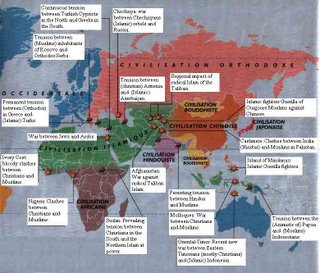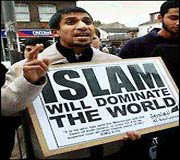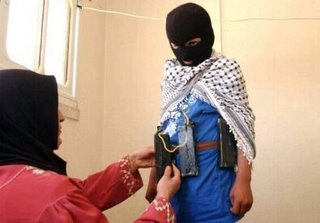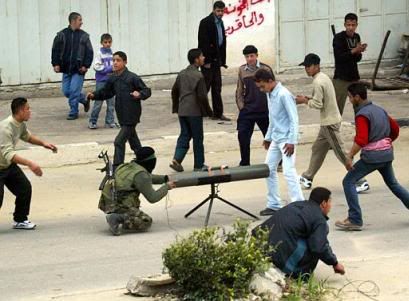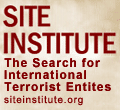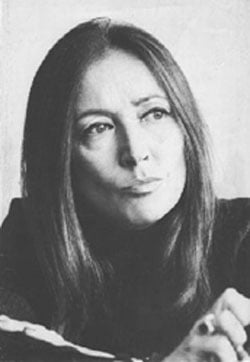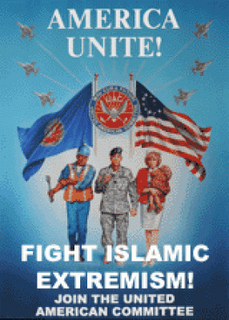Wednesday, April 27, 2011
ISLAMIC Republic of Turkey – the First Fascist State in History
Republic of Turkey – the First Fascist State in History
By Times.am at 6 April, 2011, 11:25 am
The Republics of Armenia and Turkey have been in a long-lasting conflict with no resolution in sight. Therefore a proper assessment of the political system and state ideology of Turkey is extremely important for the Armenian state to build a competent foreign policy and properly position itself in the international arena.
The West has traditionally portrayed the Republic of Turkey which emerged on the ruins of the Ottoman Empire as a secular democratic Muslim state. Even though this cliche is being persistently circulated in the Western media and very often uttered by American and European officials, it is far from reality. Unfortunately, Armenia has not yet dared to offer its own assessment of modern Turkish statehood and tacitly put up with the aforementioned international narrative.
In reality, one of the consequences of the Armenian Genocide was the creation of the first fascist state in Europe’s periphery. The Republic of Turkey had all the core characteristics inherent to fascism and Nazism, which later emerged in Italy, Germany and some other European countries. Below the six main characteristics of Turkish fascism are identified:
1. Turkish chauvinism and genocidal policies. Mustafa Kemal (Ataturk) was formerly himself a member of the governing body of Committee of Union and Progress (CUP), the political organization of murderous Young Turks. Once in power, Ataturk and the Kemalists not only continued the Armenian Genocide, but directed their tested policies of extermination of an entire people against Greeks and other ethnic minorities. In Eastern Armenia alone, the Kemalists destroyed 200,000 Armenians (1920-1921), in Smyrna – 100,000 Greeks and Armenians (September 1922), in the Black Sea regions – about 300,000 Pontian Greeks (1919-1923). They also continued the Genocide against the Assyrians, of whom about 500,000 were annihilated by the Turkish forces from 1915 to 1923. Deportations, mass exterminations, political and cultural repressions against the Kurds, the second largest ethnic group in modern Turkey, began immediately after the Armenian Genocide and continue to this day. All Kurdish attempts to protect their basic national and human rights were brutally suppressed in 1925, 1927, and 1937. In 1980s and 1990s, more than a million Kurds were deported to large cities (during these deportations, according to various estimates, two to three thousand Kurdish villages were destroyed).
Turkish chauvinism was legislatively approved in the Constitution of 1937 under the auspicious name of “nationalism” (Milliyetçilik ), openly aiming to assimilate non-Turkic ethnic groups and legally identifying them as Turks. Although later the concept of Turkish “nationalism” was interpreted in different ways, its chauvinistic nature and essence has remained unchanged.
The modern discipline of Holocaust and Genocide Studies identifies the denial of genocide as an extension of genocidal policies. Gregory Stanton, former President of the International Association of Genocide Scholars, emphasizes that “Denial is the final stage of genocide. It is a continuing attempt to destroy the victim group psychologically and culturally, to deny its members even the memory of the murders of their relatives. That is what the Turkish government today is doing to Armenians around the world.” Elie Wiesel, the famous Holocaust survivor and political activist, has repeatedly called Turkey’s 90-year-old campaign to cover up the Armenian genocide a double killing, since it strives to kill the memory of the original atrocities. The Armenian government should have assessed Turkish denialism in similar and even graver terms, but to this date it has failed to do so for no apparent reason.
In contemporary democratic Germany it is simply impossible to imagine a street or institution named in honor of any of the leaders of the Third Reich – indeed it is legally prohibited! Meanwhile, in “democratic” Turkey the leaders of CUP, i.e. the criminal organizers and perpetrators of the Armenian Genocide, are openly glorified. For example, a district in Istanbul, a few avenues and streets in different parts of Istanbul, boulevards in Ankara and Edirne, primary schools in Istanbul, Ankara and Izmir, and a high school in Konya are all named after Talat Pasha, Minister of the Interior and (in 1917-1918) Grand Vizier of the Ottoman Empire, who personally orchestrated the Armenian Genocide.
“Democratic” Turkey also actively uses the infamous Article 301 of its Criminal Code (“insulting Turkishness”, in 2008 changed to “insulting the Turkish nation”). This law, among other things, makes the recognition of the Armenian Genocide a crime. About 50 trials have already been held based on this article.
2. Totalitarianism. Up to the late 1940s Turkey was a one-party state. However, even today “democratic” Turkey periodically imposes a ban on one political party or another (even those elected to parliament), while its leaders are thrown in jail on trumped-up political charges. The last of a series of such cases occurred in December 2009, when the Turkish Constitutional Court banned the pro-Kurdish Democratic Society Party (DTP), which had 21 MPs. All the property of DTP was confiscated by the state. This even prompted the European Union, which by and large turns a blind eye to the racist repressions against 20 million Kurds in Turkey, to remind Ankara that “the dissolution of political parties is an exceptional measure that should be used with utmost restraint.”
Turkey’s state propaganda, all-inclusive revision and falsification of the Ottoman and modern Turkish history through carefully controlled scholarship, school curricula, and legally enforced taboos, including severe restraints on free access to information and freedom of expression, resulted in effective brainwashing of its own population.
3. Statism (etatism). The Turkish Constitution of 1937 strengthened the regulatory role of the state not only in the economy, but also in ideology.
4. Anti-communism. Ataturk, despite his friendship with the Soviet Union, was a staunch anti-communist. The Communist Party of Turkey has been banned since 1923 and remained illegal throughout its whole history, having been routinely subjected to most brutal state repressions.
5. Leaderism and the cult of personality. In Turkey, the cult of Ataturk is still in full bloom. Statues and monuments of Ataturk are installed in every city, his portraits are hung in all government and administrative institutions, as well as in school classrooms, and his portraits are on banknotes and coins of all denominations. Criticism of his life activities and biography are criminalized and carrying Ataturk as one’s last name is banned.
6. Militarism and aggression. Turkey is one of the most militarized countries on earth, with the eighth-largest army in the world and second only to the United States in NATO. The decisive sway of the Turkish military on domestic politics is well known: one only needs to recall the three coups d’état carried out by the Turkish army in 1960, 1971 and 1980, as well as the harsh ousting of Islamist Prime Minister N. Erbakan from power in 1997 (incidentally, his ruling “Welfare Party” was also banned).
The Republic of Turkey has repeatedly resorted to military force or threat of force against neighboring countries, such as Syria, Cyprus, Iraq, Greece, and Armenia. The Northern part of Cyprus, Syria’s district of Alexandretta, and the western part of Armenia still remain occupied. The Turkish army also regularly invades Northern Iraq.
In 1920, the first Republic of Armenia fell under the blows of Kemalists. Indeed, the direct order that Karabekir-Pasha received from Mustafa Kemal literally specified “to destroy Armenia morally and physically.” Immediately after the collapse of the Soviet Union, Turkey’s policy towards the “third” Republic of Armenia became explicitly aggressive in nature once again, including an ongoing land-blockade, refusal to establish diplomatic relations, enduring Armenian Genocide denial, support and assistance to Azerbaijan in its preparations for a new military venture against Armenia, etc.
The emergence and subsequent superstructural metamorphosis of fascism in Turkey was not adequately evaluated by Soviet/Russian or Western historiographies and neither was it reflected in international legal and political documents. However, this should not lead anyone astray. Generally, Turkophilia in political and academic circles in both the West and USSR/Russia, is a quite multi-faceted phenomenon and a separate topic for discussion. Here an incomplete explanation will suffice: the USSR was simply unable to call Ataturk a fascist, because “the leader of the world proletariat” Vladimir Lenin and Ataturk signed the infamous Moscow Treaty of “Friendship and Brotherhood” on March 16, 1921 (incidentally, exactly 90 years ago). Meanwhile, the West avoided such an unfavorable evaluation, because Turkey has historically been considered – and actually was – a barrier against Russia/Soviet Union, and a key strategic ally. Turkey’s alliance with the West was legally formalized by its accession to NATO in 1952.
If the international community (alias “the great powers”) does not adequately characterize the fascist essence of the modern Turkish state, this is simply because it has not been interested in such an exposé. But independent Armenia, by failing to officially identify and denounce the fascist nature of Turkish state, not only refuses to clearly see and understand the true ideology, strategic goals and calculations of its age-old archenemy, but also deprives itself of the chance to present properly its own dire geostrategic situation to the world. After all, Armenia’s present security predicaments are a direct result of crimes by Turkish fascism!
Attempts to rehabilitate Turkey without having it incur its due responsibility – in particular, without the territorial restitutions and other compensations to Armenia – can lead to new and repeated genocides. This is the main conclusion that the international community has yet to draw.
ARMEN AYVAZYAN
Doctor of Political Sciences
“Hayastani Zrucakic”, N: 10 (173 ), 18 March, 2011
http://times.am/2011/04/06/republic-of-turkey-%E2%80%93-the-first-fascist-state-in-history/
Tags: Armenia, Attaturk, Erdogan, fascism in the Muslim world, fascism in Turkey, flotilla, Gaza, History, Islam, Islamic fascism, Islamic supremacy, Islamofascism, Middle East, Muslims, Palestine, racism, racism in Islam, racism in Turkey, Turkey, Young Turks
Labels: History, islamofascism, Turkey
Sunday, April 10, 2011
Racism in the Islamic Republic of Iran
Racism in the Islamic Republic of Iran
Victims include: Azeris Beluchis Jews Kurds Blacks Bahai Arabs
UN anti-racism panel finds Iran discriminating against Kurds, Arabs, other ethnic minorities 28.8.2010
GENEVA, — A United Nations panel says Arabs, Kurds and other minorities in Iran face discrimination because of their ethnicity.
The U.N. Committee on the Elimination of Racial Discrimination says minorities in the Islamic republic don’t enjoy the same rights to free expression, health and housing as other ethnic groups.
The panel published a report Friday urging Iran to end all forms of discrimination and provide clearer information for future reports.
The Geneva-based panel also rejected Iran’s claims that discrimination against women and religious minorities such as the Baha’i isn’t covered by the U.N.’s 1969 anti-racism convention. � UN anti-racism panel finds Iran discriminating against Kurds, Arabs, other ethnic minorities. — UN racism body decries Iran’s treatment of ethnic minorities
Iran should do more to protect its ethnic minorities such as Arabs, Kurds and Baluch, a United Nations human rights body said on Friday.
The Committee on the Elimination of Racial Discrimination (CERD), a group of 18 independent rights experts, said Iran lacked data on the numbers of ethnic minorities despite a census in 2007, but the participation of such people in public life appeared to be lower than could be expected.
Several armed groups opposed to the government are active in Iran, mostly made up of ethnic Kurds in the northwest, Baluch in the southeast and Arabs in the southwest.
“The Committee expresses concern at the limited enjoyment of political, economic, social and cultural rights by… Arab, Azeri, Balochi, Kurdish communities and some communities of non-citizens,” it said in a report on a regular review of Iran’s compliance with a 1969 international treaty banning racism.
It also urged Iran to continue its efforts to empower women and promote their rights, paying particular attention to women belonging to ethnic minorities.
Some tenets of Islamic sharia law disadvantage Iranian women, Indian committee member Dilip Lahiri said. “On the other hand, in terms of their education and access to jobs, very remarkable progress has been made in Iran,” he told a briefing.
The committee voiced concern at reports of a selection procedure for state officials and employees, known as gozinesh, requiring them to demonstrate allegiance to the Islamic Republic of Iran and the state religion, which could limit opportunities for ethnic and religious minorities.
It said that lack of complaints was not proof of the absence of racial discrimination, as victims may not have confidence in the police or judicial authorities to handle them.
It called on Iran to set up an independent national human rights institution and report back to it at the start of 2013 on how it was dealing with the concerns and recommendations.
Copyright, respective author or news agency, The Associated Press AP http://www.ekurd.net/mismas/articles/misc2010/8/irankurd648.htm
UNPO: Iran: An Unknown Apartheid - 14 Feb 2010 ... Iran: An Unknown Apartheid
Iranian representatives plead for international community to address bigotry towards minorities.
UNPO representatives addressed Permanent Missions in the UN on Friday 12 February to decry the situation of minorities within the Islamic Republic of Iran, just days before Iran comes under examination in their first ever Universal Periodic Review at the UN Human Rights Council.
The event hosted by Interfaith International and UNPO provided a platform for debate and discussion of rights violations with a particular focus on the Baloch, Ahwazi Arab, Azerbaijani Turk and Kurdish minorities.
In reference to the obstacles placed before religious and ethnic minorities in the workplace and to gain access to university, Mr. Nasser Boladai from West Balochistan denounced life for many citizens in Iran as a form of “apartheid about which the world is unaware”.
http://www.unpo.org/article/10715
Iran and the challenge of diversity: Islamic fundamentalism, Aryanist racism, and democratic struggles Alireza Asgharzadeh, Palgrave Connect (Online service) Palgrave Macmillan, 2007 – 249 pages This book interrogates the racist construction of Arya/Aria and Aryanism in an Iranian context, arguing that a racialized interpretation of these concepts has given the Indo-European speaking Persian ethnic group an advantage over Iran?s non-Persian nationalities and communities. Based on multidisciplinary research drawing on history, sociology, literature, politics, anthropology and cultural studies, Alireza Asgharzadeh critiques the privileged place of Farsi and the Persian ethnic group in contemporary Iran. The book highlights difference and diversity as major socio-political issues that will determine the future course of social, cultural, and political developments in Iran. Pointing to the increasing inadequacy of Islamic fundamentalism in functioning as a grand narrative, Asgharzadeh explores the racist approach of the current Islamic government to issues of difference and diversity in the country, and shows how these issues are challenging the very existence of the Islamic regime in Iran. http://books.google.com/books?id=RlY-SQAACAAJ
Iran: A People Interrupted Hamid Dabashi – New Press, 2008 – 324 pages – Page 151 And the bogus pro- Palestinian politics of the reigning regime degenerates into an anti-Jewish language. Iranian racism is particularly evident in Tehran, where similar racist negativity is directed at provincial Iranians— the Isfahanis, the Rashtis, the Azaris, the Kurds, the Lors, the Baluchis, the Arabs, or what the Tehranis in moments of unsurpassed whitewashed racism call dehatis, a nasty derogatory term meaning “the peasants.” The roots of this Tehrani-based racism is deeply buried in the whitewashed, Eurocentric Iranian bourgeoisie, who grotesquely identify with Europe, dye their hair blond, provincial Iranians. http://books.google.com/books?&id=2pHtAAAAMAAJ&dq=lors http://books.google.com/books?&id=2pHtAAAAMAAJ&dq=denigrate
Page 139
The sharp contrast in my parents’ skin colors alerted me to an astounding prevalence of Iranian racism very early in my life.2 My father’s nickname was ” Dadi Siah,” or “Dadi the Black” — his name being Khodadad, Dadi for short. http://books.google.com/books?&id=2pHtAAAAMAAJ&dq=dadi
A Review of the imposed war by the Iraqi regime upon the Islamic Republic of Iran. Ministry of Foreign Affairs. Legal Department – 1983 – 194 pages – Page xvii Airing several radio broadcasts in the Persian, Turkish, Armenian, Kurdish, Turkman and Baluchi languages in order … During celebrations marking the twelfth anniversary of coming to power of the Ba ‘athist Party in lraq, placards bearing slogans such as “leave the Arabs of Ahwaz alone”, “the Arab Gulf is the graveyard of the racist Persian regime” were… http://books.google.com/books?id=JiPRAAAAMAAJ&q=baluchi http://books.google.com/books?id=JiPRAAAAMAAJ&q=racist
Near East/South Asia report: Issue 84156 United States. Foreign Broadcast Information Service, United States. Joint Publications Research Service – Page 34 Political organizations in Ahvaz were hoping for another regime to succeed the Shah’s anti-Arab, racist regime which was … At first, the national movement in Ahvaz supported the present regime in Iran and gave it its blessings. http://books.google.com/books?&id=eTG6AAAAIAAJ&dq=racist
Human rights, the UN and the Bahá’ís in Iran – Page 401 Nazila Ghanea-Hercock – 2002 – 628 pages – Preview He said that the Committee had tried to establish whether Iran’s internal laws were in conformity with the Convention but that ‘the latest report offered no solution to that question’. The only information forthcoming from the … submitted together in document CERD/C/226/Add.8 dated 11 February 1993.41 This was again a very dry legislative document, referring to various constitutional and other legal provisions against racism in Iran with absolutely no light http://books.google.com/books?id=GeHNoviEXw0C&pg=PA401
Al-Ahwaz.com – aboutUs Thus, draw attention to Ahwaz Internet network and the Ahwazi Arab info Center are Media … Iran has been applying a policy of racial discrimination in the … http://www.al-ahwaz.com/english/2011/index.php?page=aboutUs
Peter Tatchell: Iran is a Racist State27 Oct 2006 … Iran is waging a secret, racist war against its Arab population. …. Ahwaz produces 90% of Iran ’s oil and 10% of OPEC’s global output. … http://www.petertatchell.net/international/iranraciststate.htm
Iran after the revolution: crisis of an Islamic state – Page 231 Saeed Rahnema, Sohrab Behdad – 1996 – 256 pages Turkish and Arab domination over Iran in the remote past was declared the main historical obstacle to the continuity of the glorious Persian empire. This racist ideology denied the national, linguistic and cultural diversity of Iran. http://books.google.com/books?id=VlyCpbY9_QQC&pg=PA231
Azerbaijan Since Independence – Page 460 Svante E. Cornell – M.E. Sharpe, 2010 – 512 pages After the summer 2003 demonstrations, the Iranian government cracked down on student as well as nationalist organizations. A 19-year-old Azeri girl was executed by Iranian authorities in July 2003 for her role in the protests (―Ethnic Azeri Student Leader Killed in Iran—Paper, BBC Monitoring International Reports, July 22, 2002). In an earlier incident, in January 2000, Iranian forces had opened fire on a demonstration in Tabriz (―Azeri TV Says Iranian Police Opened Fire During Rally in Tabriz, BBC Summary of World Broadcasts, January 10, 2000). http://books.google.com/books?id=whVDskeHl2YC&pg=PA460
Racist slogan used by Iranian national team during 2011 AFC Asian Cup - 2 Jan 2011 ... In addition, we recognize that racism is not tolerated in the sport communities and ... PETETION: stop Islamic republic of Iran's apartheid policy in football leagues… http://en.baybak.com/racist-slogan-used-by-iranian-national-team-during-2011-afc-asian-cup.azr
Racist insults against Azerbaijani Turks in Iran Iranian.com 10 May 2010 … If anyone has been to this juvenile site you’ll know that it … http://www.iranian.com/main/blog/tapesh/racist-insults-against-azerbaijani-turks-iran
Iran’s anti-Arab racism Comment is free guardian.co.uk 26 Oct 2007 … Peter Tatchell: Iran treats its Arab minority as second-class citizens. Now it is planning to hang six of them after rigged trials held in … http://www.guardian.co.uk/commentisfree/2007/oct/26/iransantiarabracism
UNPO: Iran: An Unknown Apartheid - 14 Feb 2010 ... Iran: An Unknown Apartheid. Iranian representatives plead for international community to address bigotry towards minorities.
http://www.unpo.org/article/10715
Netherlands Institute of Human Rights - CERD Concluding Observations: IRAN ISLAMIC REPUBLIC OF - 20 Feb 2011 … The Committee recommends that the State party undertake the necessary measures to harmonize its domestic legislation with the Convention. It also recommends that the State party take further steps for public dissemination of the provisions of the Convention and the possibilities for its invocation to combat racial discrimination, including in minority languages, and that it provide its Government officials with education and training in this area.
8. The Committee notes the information furnished by the State party on the definition of racial discrimination in article 19 of the Iranian Constitution and reiterates its concern that this definition does not explicitly cover the forms of racial and ethnic discrimination prohibited under the Convention. (art. 1)
The Committee again urges the State party to consider reviewing the definition of racial discrimination contained in its Constitution and domestic law in order to bring it into full conformity with article 1, paragraph 1, of the Convention.
9. While commending the efforts undertaken by the State party to empower women, the Committee is concerned that women of minority origin may be at risk of facing double discrimination. (art. 2) The Committee draws the State party’s attention to its general recommendation No. 25 (2000) on gender-related dimensions of racial discrimination and recommends that the State party continue its efforts to empower women and promote their rights, paying particular attention to women belonging to minorities.
10. The Committee notes the information furnished by the State party on the 1985 Press Act. The Committee also notes the efforts undertaken by the State party to combat racist discourse in the media by applying sanctions to newspapers whose publications have included racist discourse. However, the Committee is concerned at continued reports of racial discrimination, inter alia, directed against Azeri communities in the media, including stereotyped and demeaning portrayals of those peoples and communities. The Committee is also concerned at the reports of racial discrimination in everyday life and statements of racial discrimination and incitement to hatred by government officials. (art. 4)
The Committee recommends that the State party take appropriate steps to combat manifestations in the media, as well as in everyday life, of racial prejudice that could lead to racial discrimination. The Committee also recommends that, in the area of information, the State party promote understanding, tolerance and friendship among the various racial and ethnic groups in the State party, especially on the part of public officials, and including through the adoption of a media code of ethics that would commit the media to showing respect for the identity and culture of all communities in the State party, taking into account the possible intersection of racial and religious discrimination. It reiterates its previous request that the State party submit information in its next periodic report on the application of this law to combat racial discrimination… http://sim.law.uu.nl/SIM/CaseLaw/uncom.nsf/804bb175b68baaf7c125667f004cb333/4af24cf864d4b316c125778f0032b7a2?OpenDocument
Today.Az – All news from Azerbaijan – 16 Nov 2006 … [...] Balochis have been preyed upon by the Iranian regime. On 23 August 2006, the Marsad Group attacked a village near Zahidan, the provincial capital of Balochistan, and killed two young men in front of women and children. They were forced out of their homes, to search for the members of resistance movement and weapons. The two young men had protested against the ill treatment of the women. On the 24th of August Amir Hamzeh Eidouzehi, a young man, was hanged in public in Baloch town of Khash, and another young men, Ali Jan Moradi, was hanged in IranShahr on 27 August 2006, both were accused of instigating public trouble and drug trafficking, a sentenced without trail. On the 24th of September three men identified as Ali Karimi, Gholam Koohkan, and Khodamorad Lashkarzadeh, were hanged in prison in provincial capital Zahedan. These dissidents were also executed on charges of drug smuggling and convicted without trial.
Azeri Turks, comprising around a third of the Iranian population and also subject to racism in Iran, have also backed the campaign to halt the execution of Ahwazis. The Azerbaijani Youth Association is lobbying the European Parliament and European governments to take action. A representative wrote to the British Ahwazi Friendship Society (BAFS), saying: “It is with great concern that I have heard about Ahwazis in Iran facing execution. When it comes to life we make no difference on if they are Arabs or Turks. We must show solidarity with each other and together fight against these fascists.” http://www.today.az/print/news/politics/32679.html
Iran: Azeri Turks protest against discrimination Workers’ Liberty – I will fight for the independendence of my Azeri brothers in Iran and their succession from the persion chavinism and racism. http://www.workersliberty.org/node/6325
Iranian President Mahmoud Ahmadinejad sparks racism meet walkout ... - 21 Apr 2009 ... DELEGATES from Western countries last night walked out of the UN anti-racism summit in Geneva after Iran's President Mahmoud Ahmadinejad ... http://www.theaustralian.com.au/news/world/ahmadinejad-sparks-racism-meet-walkout/story-e6frg6so-1225700372171
Iran, Ahmadinejad's Letter, and Racism toward Obama - By Michael Rubin.. - 24 Nov 2008 ... Iran, Ahmadinejad's Letter, and Racism toward Obama ... the Islamic Republic's de facto lobby in Washington, speak out against such racism ... http://www.nationalreview.com/corner/174042/iran-ahmadinejads-letter-and-racism-toward-obama/michael-rubin
Labels: Iran, islamofascism, racism

